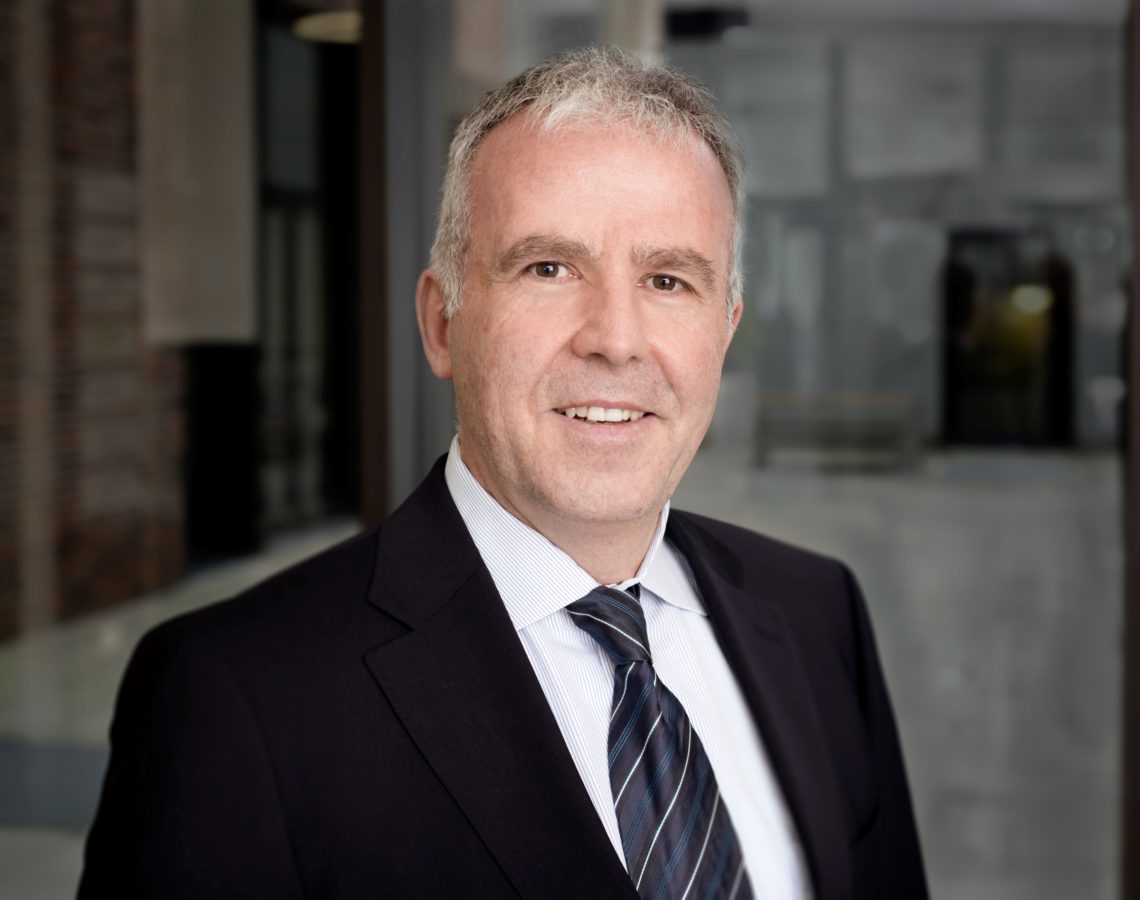German Council of Shopping Places Interview with Harald Ortner

Thank you, Hanau!
The open letter from Hanau’s mayor Claus Kaminsky to Minister Geywitz leads to the question of how effective the federal funding programs are. GCSP board member Harald Ortner was at the inner city congress in Potsdam and, as a discussant and participant, perceived the current mood among municipalities and the criticism. We asked him about it.
For a good six months now, the traffic light government has been in power in Berlin, and for the first time there is once again a Federal Minister for Housing, Urban Development and Construction in the person of Klara Geywitz. On the one hand, this pleases the real estate industry, on the other hand, the open letter to Klara Geywitz from the mayor of Hanau clearly speaks critical words. How do you assess the situation?
In response to the letter, the minister made it clear in her opening speech to the congress that the funding amount had been increased fivefold by the previous government, but that the staff required to process the applications had unfortunately been increased.
the staff needed to process the funding applications was unfortunately not hired. She promised the municipalities to quickly remedy this situation.
After that, is the path to funding quickly achievable for the cities?
Unfortunately, it is not, as the applications are so complex that most
small and medium-sized towns do not have the staff with the expertise to even apply.
be able to apply at all. This then leads to the fact that it is rather the large cities with sufficient specialist staff, which actually do not need the money at all or need less than those just mentioned, that submit applications and then, when topped up, also receive money.
Will the small and medium-sized cities be helped if the applications are simplified?
Regrettably not, as many cities lack the know-how on how to deal with the problems created by the pandemic and the Ukraine crisis. There are some exceptions like the
City of Hanau, which have mastered the full range of tools, but only because those in charge are well advised by third parties and also have an open ear for the specific issues, as well as being in constant dialogue with all stakeholders in the city center.
At the congress, there were nevertheless reports of many projects to be implemented in the city centers. How do you assess the mood?
Surprisingly, many municipalities assume that what is approved will be built. There is a lack of insight here with regard to the mechanisms of the market, which is also due to the fact that project developers are currently often not giving the municipalities a clean bill of health, as there is still hope that everything will quickly turn around. On the other hand, there is often a certain lack of ideas when it comes to getting the private sector, whether property owners or operators, to invest. The fact that a great deal can be achieved with little impetus is shown, for example, by
the city of Hanau’s City Economic Stimulus Program, which, with funding of only 1.5 million euros, has stimulated investments in the city center totaling 12 million euros.
What is your outlook for the near future?
It is amazing that the ingenuity of some mayors has increased during the pandemic, as they have learned to get things off the ground even with little funding. Even the terminology used at the downtown convention – such as folding chair sessions, accomplices, city fans – attests to this.
The self-confident and openly conducted factual dialogue between the city of Hanau and the Federal Minister of Construction makes it clear that it depends on personalities to advance a cause. More Hanau initiative would do many small and medium-sized cities good in the coming months. And the unbiased and goal-oriented dialogue with all stakeholders will hopefully continue to prevail.
As the German Council of Shopping Places, we continue to create the networking platform for the retail real estate industry, retailers, cities and politicians. The response is encouraging.